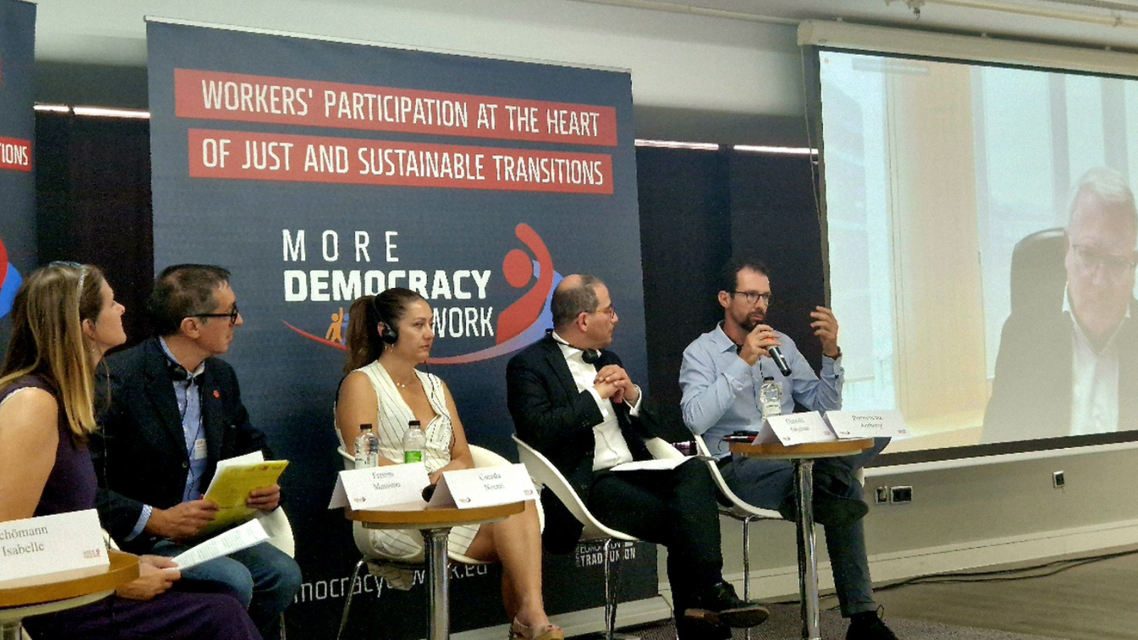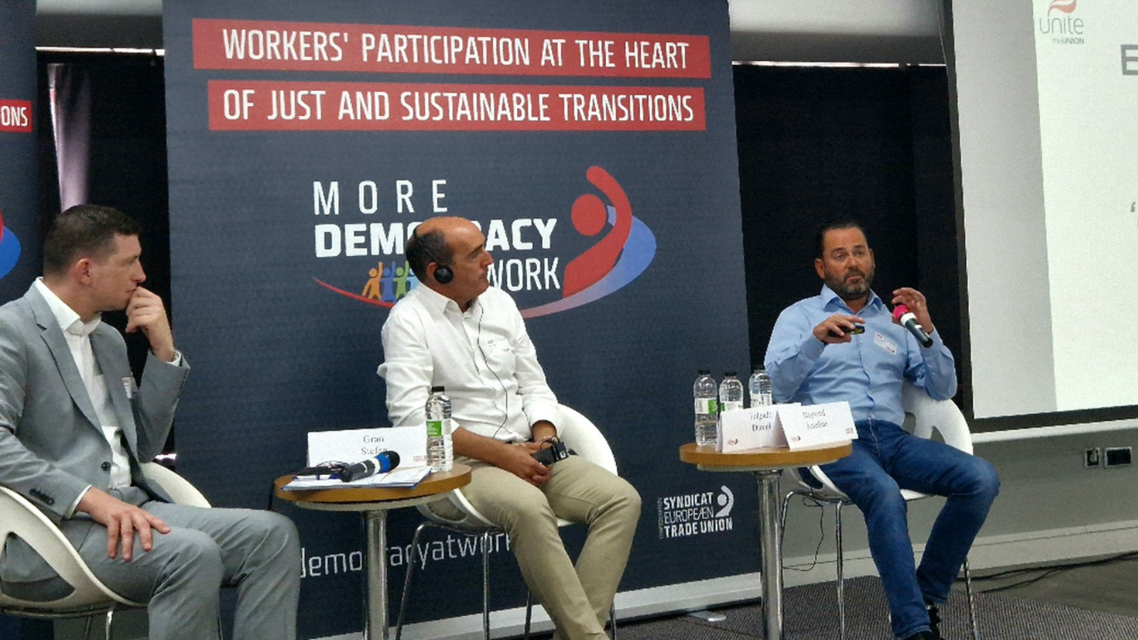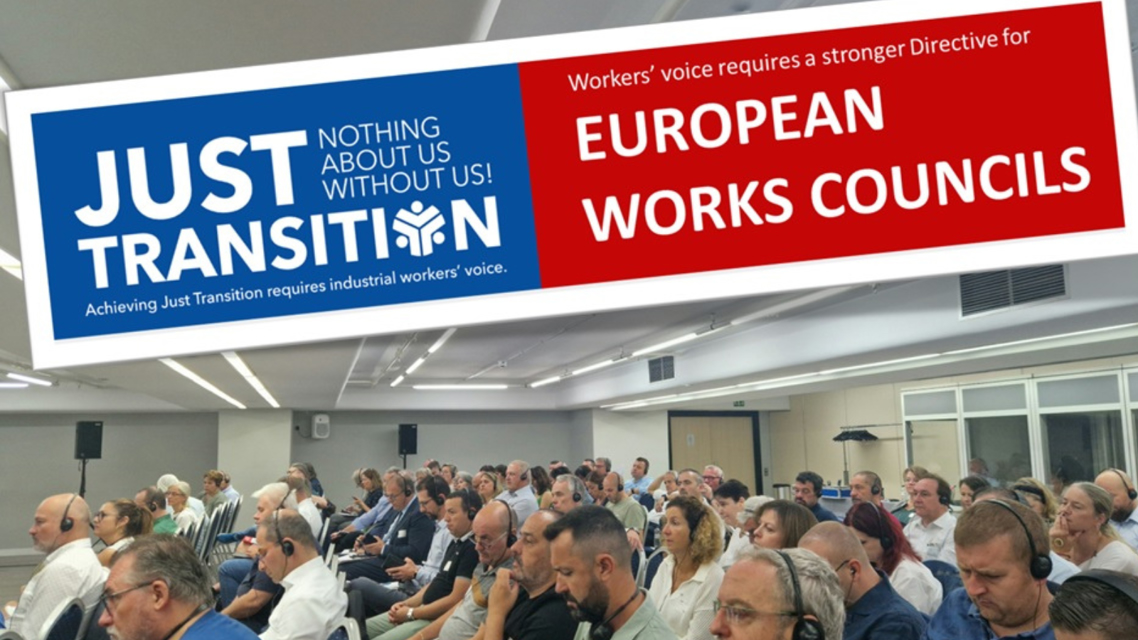Workers’ rights are not rights if they only exist on paper.
Faced with the massive challenges posed by the green and digital transitions in a context of multiple crises (inflation, energy, global trade, war…), European industries are at a crossroads. It is estimated that the jobs of 25 million industrial workers will move, change or even disappear as European societies decarbonise. IndustriAll Europe has long advocated for genuinely just transitions that deliver quality jobs in thriving new and renewed industries. A Just Transition can only materialise if workers are on board: Nothing about us without us!
Isabelle Barthès, industriAll Europe Acting Joint General Secretary, recalled that European Works Councils [EWC] have a more important role than ever to play in times of tremendous challenges for workers and the society.
“EWCs are a pivotal instrument in anticipating and managing the many transformations our industries are confronted with. Without quality dialogue in companies, we will not overcome the multiple crises we face and shape a robust European industry.”
For years, European trade unions have been fighting to strengthen the rights of what is still the most relevant instrument for transnational dialogue with top-level management: the European Works Councils. Since 2017, industriAll Europe, the European trade union federations and the ETUC have been highlighting the serious shortcomings of the existing EWC Directive and have listed 10 demands to make information and consultation effective before decisions - including restructuring decisions – are taken.
Our calls have been taken up by the European Parliament in a resolution adopted in February which supported our view that only a legally binding EU initiative could address the problems. Finally, after an in-depth assessment and formal consultation of the EU social partners (see the ETUC reply), Nicolas Schmit, European Commissioner for Employment and Social Rights, announced that the Commission will present a legislative proposal to revise the EWC Directive at the end of the year.
“I am convinced of the need to improve the EWC Directive, and to act urgently”
stated Commissioner Nicolas Schmit at the ETUC’s annual EWC conference which was packed with testimonies of dysfunctional EWCs and their inability to seek proper redress when their rights were violated. During the panel discussion, Anthony Perrocheau (CFDT FGMM) reported the impossibility of holding a proper dialogue when the Thalès EWC he chairs is constantly battling management’s abusive interpretation of confidentiality. Jonathan Hayward (co chair of the industriAll Europe Company Policy Committee) recalled what a difference it makes when an EWC benefits from the legal protection of the EWC Directive (as opposed to pre-Directive agreements) and the support of trade union experts acting as coordinators, which he noted was regrettably not the case for too many EWCs.
The discussion proved how widespread the cases of EWCs struggling daily to have their rights respected by management or enforced by courts are:
“Workers’ rights are not rights if they only exist on paper. Some may think that the EWC Directive looks good. In practice though, the letter and spirit of the EWC Directive is hardly enforced, nor are the sanctions effective or strong enough to discourage non-compliance by management. We can no longer tolerate this situation and join the call for a stronger Directive for EWCs”
concluded Isabelle Barthès.
(2023) European trade unions’ reply to the Commission consultation on the possible revision of the EWC Directive EN
(2017) European trade union demands for a modern European Works Council Directive EN FR


